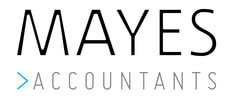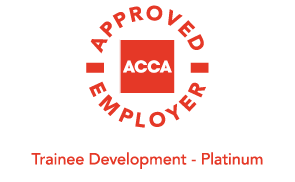Chancellor abolishes furnished holiday lets treatment and announces stamp duty land tax changes
Published 2 April 2024
From April 2025, taxpayers will no longer be able to treat their property business as a furnished holiday let.
Also from the 1 June 2024 Stamp duty land tax multiple dwellings relief will be abolished.
In the Spring Budget 2024, the Chancellor announced that the special tax regime for furnished holiday lets will end from April 2025.
Furnished Holiday Lets benefit from certain tax advantages compared with other property businesses. These tax advantages will cease to apply from April 2025 and transitional adjustments are likely to be required. For example bringing in a disposal value for assets where capital allowances have been claimed.
This change is expected to bring the Government additional tax receipts of £355m by 2027/28. In due course the draft legislation providing for this measure will be published. This will include an anti-forestalling rule to prevent the obtaining of a tax advantage through the use of unconditional contracts to obtain capital gains relief under furnished holiday let rules.
What is classed as a Furnished Holiday Let?
A furnished holiday let is a type of property business that meets certain conditions.
These conditions require that the property is available to, and is let by short-term visitors on a commercial basis for a minimum amount of days in the year.
The furnished holiday let has a number of tax advantages compared to other property businesses. The regime is available to both individuals and companies, however, the regime is less favourable for companies than individuals.
One advantage for individuals, concerns income tax relief for interest. For a typical residential property letting business, tax relief for finance costs is given as a reduction in the person’s income tax liability, capped at 20%.
However, in respect of the furnished holiday let the interest may be deducted in calculating the person’s profits. This could save income tax at a higher rate, for example, 45% where the person pays income tax at the additional rate in England, Wales and Northern Ireland.
There are other tax advantages and these include:-
capital allowances may be claimed on plant and machinery
income from the business is earned income for the purposes of making pension contributions; and various capital gains tax reliefs.
Business asset disposal relief may apply on the sale of the property. This would mean that any gain falling within the individual’s lifetime business asset disposal relief limit (currently £1m) can be taxed at a 10% rate rather than 28% (or 18% for a basic rate taxpayer).
Also announced in the Budget was that the higher capital gains tax rate for property disposals would reduce from 28% to 24% from 6 April 2024.
Furnished Holiday Let boundary between lettings and a trade
The rules came into force in 1982/83, in part to provide certainty of tax treatment following a number of tax cases concerning whether a short-term holiday rental business should be treated as a trade for tax purposes.
This legislation deems the furnished holiday let to be a trade for the purposes of the specific tax rules mentioned above.
Changes to stamp duty land tax multiple dwellings relief in England and Northern Ireland
At the end of 2021, the government consulted on potential changes to the mixed property rules and multiple dwellings relief.
After a two-year wait for the outcome of that consultation, it was announced that that multiple dwellings relief will be abolished in England and Northern Ireland from 1 June 2024.
The proposed apportionment method for calculating the tax on mixed-property purchases will not go ahead.
Transactions with contracts that were exchanged on or before 6 March 2024 will continue to benefit from multiple dwellings relief regardless of when they complete. This will also apply to other purchases that are completed before 1 June 2024.
Special transitional rules also apply to linked transactions so that transactions occurring after abolition of multiple dwellings relief cannot be treated as linked to earlier transactions, where tax was calculated in line with the multiple dwellings relief rules.
The government will be engaging with the agricultural industry to ascertain how the sector is affected by the abolition of multiple dwellings relief.
From the 6 March 2024 other Stamp Duty Land Tax changes include:
protection of registered providers of social housing in England and Northern Ireland from a charge when purchasing property with a public subsidy;
exempting public bodies from the 15% SDLT rate; and
two changes to the first-time buyers' relief rules involving the grant of a new lease via a nominee or bare trust.
From April 2025, taxpayers will no longer be able to treat their property business as a furnished holiday let.
Also from the 1 June 2024 Stamp duty land tax multiple dwellings relief will be abolished.
In the Spring Budget 2024, the Chancellor announced that the special tax regime for furnished holiday lets will end from April 2025.
Furnished Holiday Lets benefit from certain tax advantages compared with other property businesses. These tax advantages will cease to apply from April 2025 and transitional adjustments are likely to be required. For example bringing in a disposal value for assets where capital allowances have been claimed.
This change is expected to bring the Government additional tax receipts of £355m by 2027/28. In due course the draft legislation providing for this measure will be published. This will include an anti-forestalling rule to prevent the obtaining of a tax advantage through the use of unconditional contracts to obtain capital gains relief under furnished holiday let rules.
What is classed as a Furnished Holiday Let?
A furnished holiday let is a type of property business that meets certain conditions.
These conditions require that the property is available to, and is let by short-term visitors on a commercial basis for a minimum amount of days in the year.
The furnished holiday let has a number of tax advantages compared to other property businesses. The regime is available to both individuals and companies, however, the regime is less favourable for companies than individuals.
One advantage for individuals, concerns income tax relief for interest. For a typical residential property letting business, tax relief for finance costs is given as a reduction in the person’s income tax liability, capped at 20%.
However, in respect of the furnished holiday let the interest may be deducted in calculating the person’s profits. This could save income tax at a higher rate, for example, 45% where the person pays income tax at the additional rate in England, Wales and Northern Ireland.
There are other tax advantages and these include:-
capital allowances may be claimed on plant and machinery
income from the business is earned income for the purposes of making pension contributions; and various capital gains tax reliefs.
Business asset disposal relief may apply on the sale of the property. This would mean that any gain falling within the individual’s lifetime business asset disposal relief limit (currently £1m) can be taxed at a 10% rate rather than 28% (or 18% for a basic rate taxpayer).
Also announced in the Budget was that the higher capital gains tax rate for property disposals would reduce from 28% to 24% from 6 April 2024.
Furnished Holiday Let boundary between lettings and a trade
The rules came into force in 1982/83, in part to provide certainty of tax treatment following a number of tax cases concerning whether a short-term holiday rental business should be treated as a trade for tax purposes.
This legislation deems the furnished holiday let to be a trade for the purposes of the specific tax rules mentioned above.
Changes to stamp duty land tax multiple dwellings relief in England and Northern Ireland
At the end of 2021, the government consulted on potential changes to the mixed property rules and multiple dwellings relief.
After a two-year wait for the outcome of that consultation, it was announced that that multiple dwellings relief will be abolished in England and Northern Ireland from 1 June 2024.
The proposed apportionment method for calculating the tax on mixed-property purchases will not go ahead.
Transactions with contracts that were exchanged on or before 6 March 2024 will continue to benefit from multiple dwellings relief regardless of when they complete. This will also apply to other purchases that are completed before 1 June 2024.
Special transitional rules also apply to linked transactions so that transactions occurring after abolition of multiple dwellings relief cannot be treated as linked to earlier transactions, where tax was calculated in line with the multiple dwellings relief rules.
The government will be engaging with the agricultural industry to ascertain how the sector is affected by the abolition of multiple dwellings relief.
From the 6 March 2024 other Stamp Duty Land Tax changes include:
protection of registered providers of social housing in England and Northern Ireland from a charge when purchasing property with a public subsidy;
exempting public bodies from the 15% SDLT rate; and
two changes to the first-time buyers' relief rules involving the grant of a new lease via a nominee or bare trust.
For further information please contact us
Mayes Accountants
Tel: 01254 300050
Email: [email protected]
Mayes Accountants
Tel: 01254 300050
Email: [email protected]
Location |
Registered as Auditors and regulated for a range of investment business activities in the United Kingdom by the Association of Chartered Certified Accountants Copyright@2018 Mayes Business Partnership Ltd 1974-2024
|








